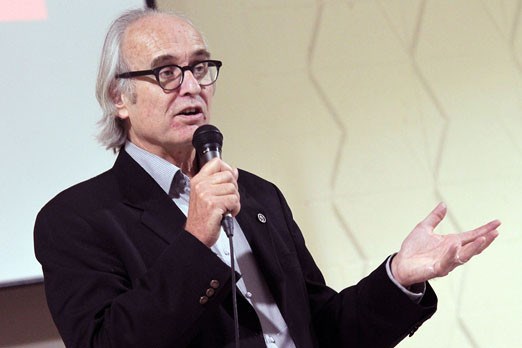Thunder Bay is walking down the right path when it comes to dealing with drug use and abuse, says the director of the Canadian Drug Policy Coalition.
Donald MacPherson, who calls the much ballyhooed and decades-long war on drugs an abject failure, says formulating a drug strategy that takes a more grassroots approach to illegal substances is a far better option than mandatory minimum sentences being proposed by the federal government in its pending omnibus crime bill.
All the war on drugs has achieved is to create a black market and retail mechanism for organized crime,” MacPherson told a gathering of students Thursday at the Pot, Pills and Parties forum staged at the Ka-na-chi-hih solvent-abuse treatment centre.
The forum was put on by the Canadian Students for Sensible Drug Policy, a precursor to a more extensive one planned for the fall.
“This is really a complex issue, it’s a multi-sector issue and unless we work together, get police at the table, get health (organizations) at the table, you’re not going to make any progress,” said MacPherson, adding Vancouver could adopt many of Thunder Bay’s groundbreaking ideas as the west coast city implements its own drug strategy.
Some policies should be universal, he said.
Taking a health and social approach to drugs, rather than a punitive one, is the first step all levels of government should strive toward, he added, because putting people in jail or giving them lifelong criminal records creates more harm than good, MacPherson said.
Treatment is a far better option.
“We’re calling for scaling up our reduction approaches across the country. Where there is injection use taking place, let’s have better exchange policy. Let’s have needle exchange in some jurisdiction. Let’s have more access to treatment for people who are injecting drugs,” he said.
“We’re calling for the end of criminalization for people who use drugs. Most people who use drugs do not develop problems with drugs.
“Those who do (use), need social help and intervention. They don’t need to be criminalized, marginalized, stigmatized and pushed away into the margins of society.”
It’s what Canadians want, he said, citing a recent poll that indicated more than half of the respondents thought the government should legalize marijuana.
“Canadians are saying regulate it, tax it. Treat it as not a criminal offense. It’s so pervasive in society that keeping it in the criminal category just exacerbates the kind of problems we’re hearing about Bill C-10.”
Users or not, students must be made aware of the harm drugs can cause and the punishment that accompanies getting caught either using or trafficking, said the city’s drug strategy co-ordinator.
Patty Hajdu said Thursday’s forum was all about educating students about drug use in ways they’re not used to seeing or hearing.
Normally, she said, educators take a stiff approach, describing individual drugs and what they do to people taking them.
“Our education is based more on the fact that if you’re going to use substances, which many people will go on to do, what do you need to know to keep yourself safe,” Hajdu said.
“Today the focus is on the new legislation that’s coming down on drug use and drug trafficking and what that means to people who use those substances – the mandatory minimums and that sort of stuff.”
Like MacPherson, Hajdu would like to see criminalization set aside in many, but not all, circumstances. Street-level users do not need criminal records and alternative ways of thinking should be front and centre, she said.
“This educational opportunity is really helping us to have a community dialogue about how we can deal with this issue in a different way, at least locally, and then looking at how we can work within the confines of the federal and provincial structures,” Hajdu said.
